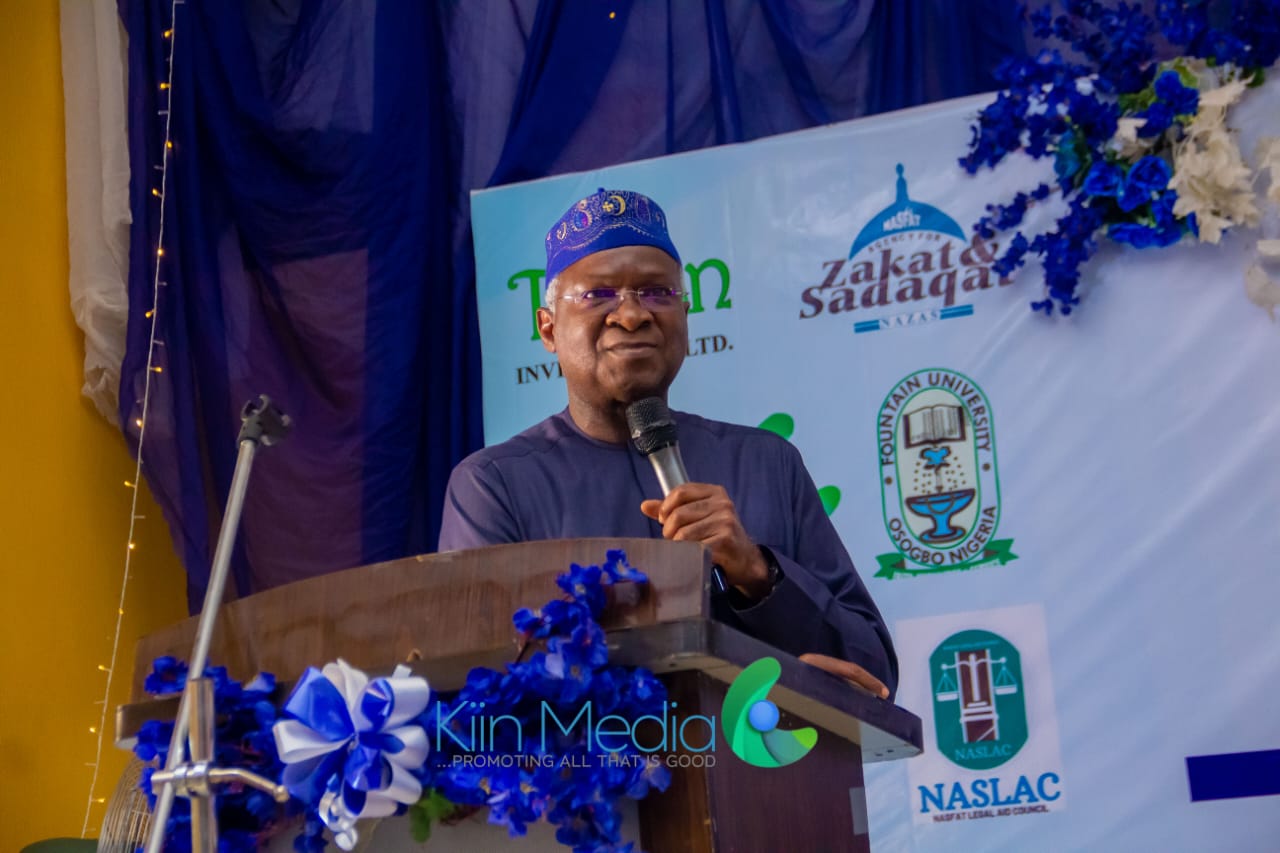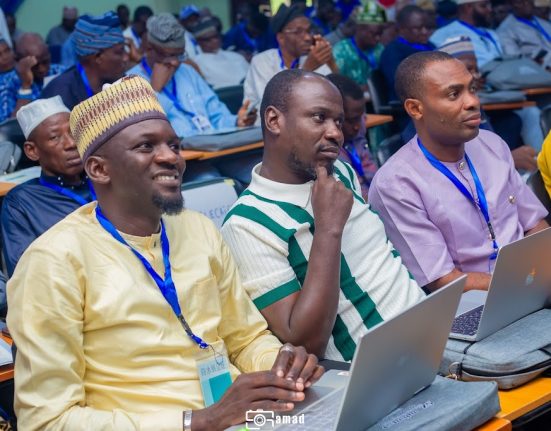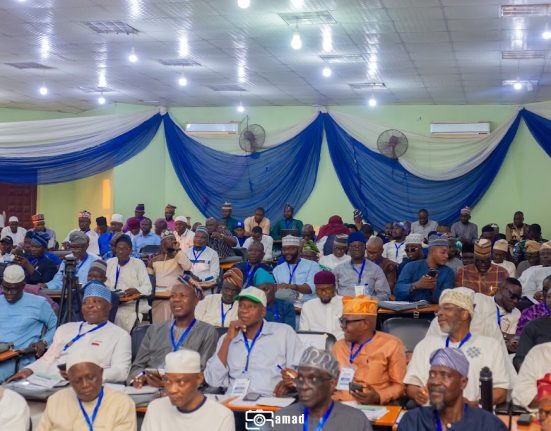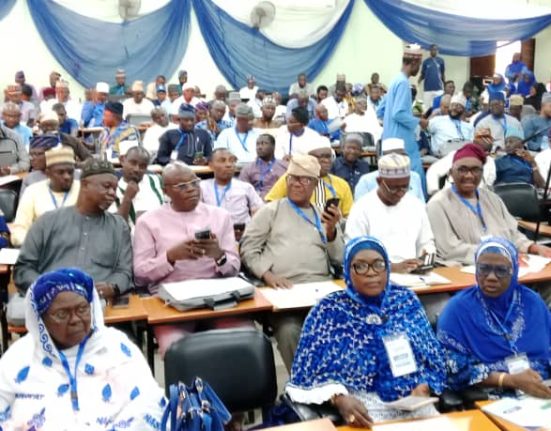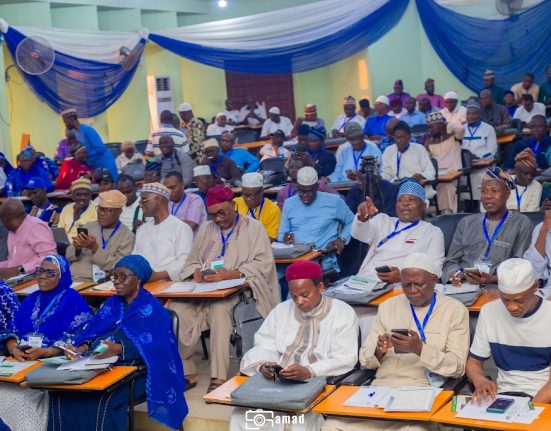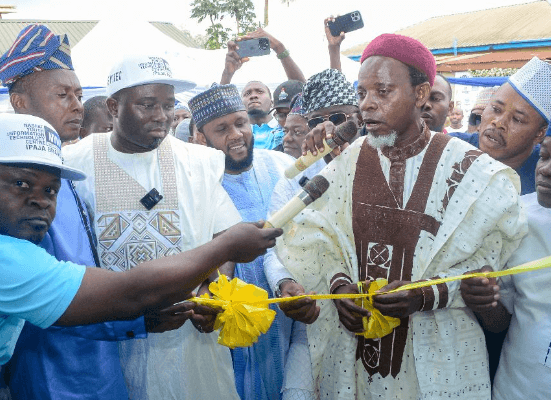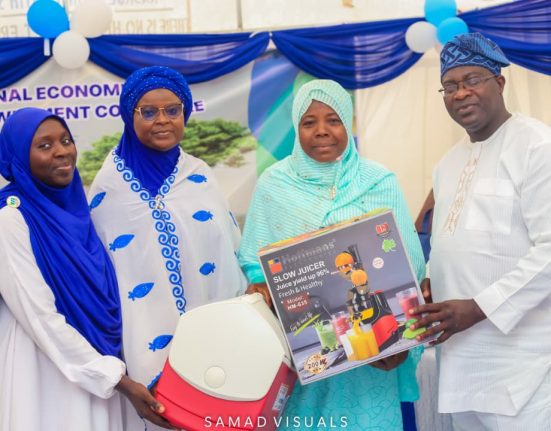By Shakirudeen Bankole
The former Governor of Lagos State, Mr. Babatunde Raji Fashola, SAN, has expressed deep concern over the growing number of faith-based organisations in Nigeria, which, paradoxically, coincides with a disturbing increase in moral decadence across the nation.
Fashola, who also served as Nigeria’s former Minister of Power, Works and Housing, made this observation while delivering the keynote address at the 30th Anniversary Lecture of the Nasrul-Lahi-Il-Fatih Society (NASFAT), held at the Nigerian Institute of Medical Research, Yaba, Lagos, on Saturday.
He spoke on the theme: “Faith, Social Justice, Economic Empowerment: The Pathway to a Better World.”
In his address, Fashola examined each of the sub-themes; “faith, social justice, and economic empowerment”, with care and depth, offering compelling arguments grounded in both local realities and global perspectives.
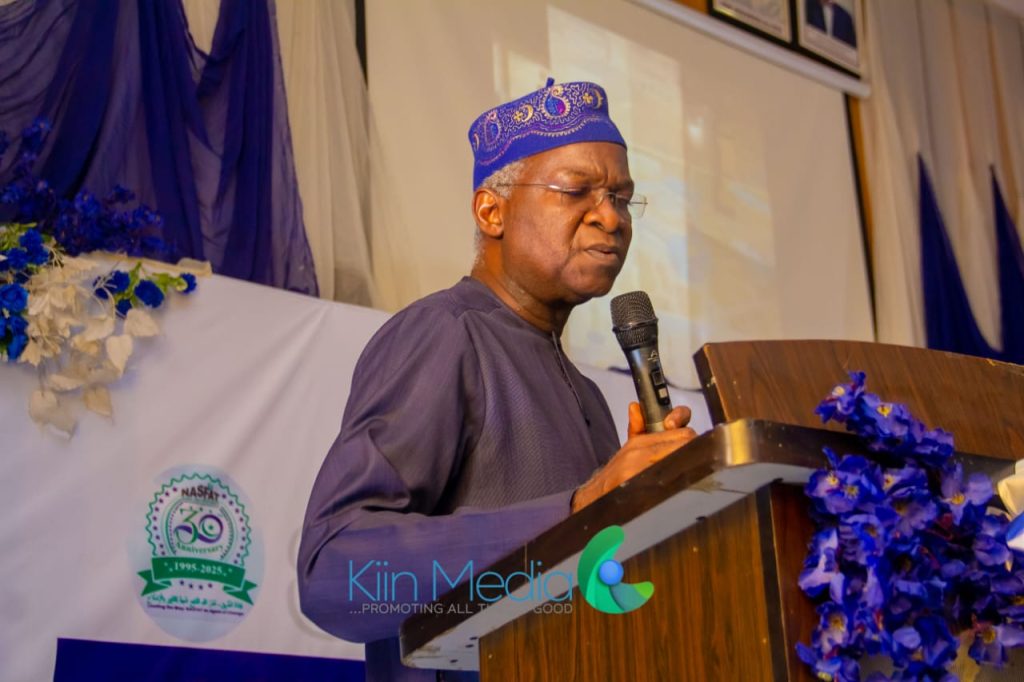
Disconnect Between Growing Faith-Based Organisations and Moral decay in Nigeria
Fashola emphasized the need for serious introspection on why the rapid growth in the number of faith-based organisations in Nigeria has not translated into a more morally upright society, one characterized by respect for humanity, personal integrity, adherence to laws, and a commitment to distinguishing right from wrong.
According to him, the core objective of any religion should be to act as a moral compass for its adherents, guiding them toward righteousness while discouraging injustice and immorality.
He lamented the increasing misrepresentation of Islam, asserting that many individuals act in ways that are contrary to its teachings because they have not subjected themselves to proper religious education and moral discipline.
“We have heard reports that faith is now being manipulated to divide families, enslave individuals, and undermine humanity. Perhaps it is time to reassess our understanding of the concept of faith,” Fashola stated.
“A true faith promotes knowledge and uplifts humanity. The Qur’an describes faith as ‘light upon light’, a light that should not be concealed but rather used to illuminate and enlighten even the darkest of places.”
He continued: “The kind of faith we must advocate is one reflected in our deeds, thoughts, and actions.”
Fashola also questioned the persistent lack of compliance with laws and government policies, especially those designed to foster moral behavior and social justice, even among members of religious institutions.
“How is it that we continue to witness violations of the law, despite the growing number of people affiliated with faith-based groups?” he asked rhetorically.
“Even in heaven, we are told that order is the first law. So, how can someone who claims to be a person of faith drive against traffic?”
“Just yesterday (Friday), I saw several cars on the road without license plates. That’s a criminal offense, for God’s sake. How can such lawlessness exist in a country where religion is so prevalent?” he questioned.
The keynote speaker stressed that “the true measure of any religion lies in its ability to instill responsibility and moral consciousness in its followers.”
“The world today is not yearning for more religious followers,” he added, “but for frontline champions of justice and compassion.”
Social Justice
Drawing a strong link between faith and social justice, Fashola described them as “Siamese twins born of the same parents.”
He explained that social justice, like faith, is a divine obligation, not a Western concept, and certainly not optional for Muslims.
“Allah commands justice, moral conduct, and prohibits immorality. Therefore, as Muslims, we are divinely mandated to pursue social justice,” he said.
Fashola stressed that social justice begins with individual accountability. A truly just and fair person, he said, will consistently do the right thing, regardless of whether anyone is watching.
“The essence of social justice is this: do not allow your dislike for others to prevent you from acting justly,” he explained.
He called for a revival of the dignity of labour as a practical path to achieving a culture of social justice.
According to him, when work is valued and diligence is rewarded, people are less likely to seek dishonest shortcuts to wealth.
“A man cannot truly pray on an empty stomach. If he does, concentration becomes difficult. A family cannot thrive on piety alone,” he asserted.
“We must provide our people with the economic foundation needed to succeed.”
He continued: “There is no better expression of social justice than a man waking up each day, looking at his children, and saying, ‘I’m going to work’, not to beg. Even the Prophet (S.A.W) said that the hand that gives is better than the one that takes.”
“This has profound implications for how society is structured. When people are given opportunities to work, to exchange their skills, talents, and time for income, they gain dignity, and that, in itself, is the foundation of social justice.”
“A society that enables people to work for their livelihood, rather than depend on charity, is one that truly protects human dignity,” he added.
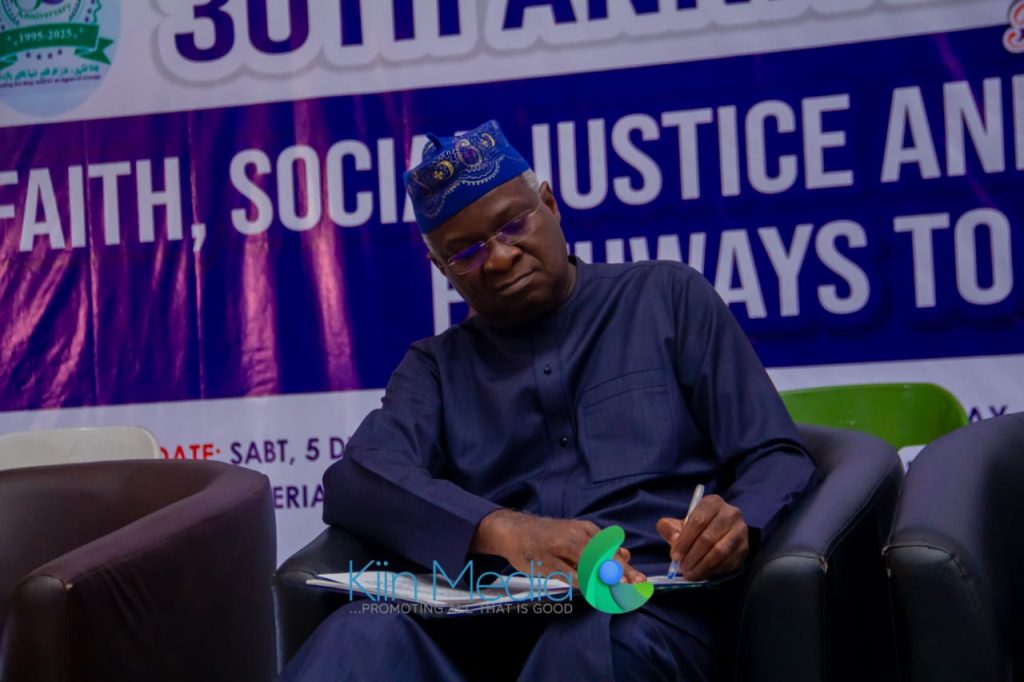
New Empowerment Initiative
Fashola also stressed the importance of rethinking current economic empowerment strategies in Nigeria.
He criticized the prevailing approach of distributing handouts, trade tools, motorcycles, and tricycles, often seen in political empowerment programs, suggesting that such methods offer only temporary relief and lack sustainable impact.
He proposed a shift toward investments in globally competitive knowledge, skills, particularly in renewable and green energy technologies—and the cultivation of personal integrity.
“These are the real engines of the next wave of global economic prosperity,” he said.
Fashola recommended the establishment of a Leadership Academy for Young African Muslim Professionals and an African Muslim Women Fellowship, initiatives he described as timely and transformative.
“A new generation of Muslim professionals, equipped with both faith and secular knowledge, will be unstoppable in advancing global growth and development,” he said.
He urged NASFAT to take the lead in promoting digital literacy and championing the green energy revolution, noting that the world has changed significantly since NASFAT’s founding 30 years ago.
“Africa’s future rests in the hands of its young population and the green economy. That’s why I firmly believe NASFAT should be leading in this direction,” he concluded.

